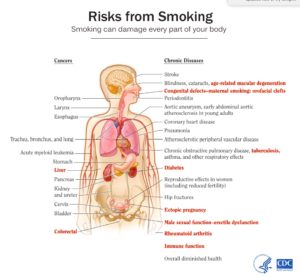
Since becoming available in the 1950’s, dental Implants have gone through a number of fine-tuning developments. As various systems have evolved over the past few decades, dental implants now offer a dependable tooth replacement option for virtually all situations.
Today, there are exceptional choices in designs that accommodate specific needs and preferences. In addition to having up to a 98 percent success rate, dental Implants provide a lifetime solution for replacing teeth. Yet, like anything that’s not a natural part of the body, a potential for failure does exist. What adds to this potential has much to do with the decisions an individual makes AFTER their implants are placed.
Implant success begins with the proper selection and placement of the implant. For example, some implants are designed to be placed in shallow bone. This occurs due to bone loss, typically from years of the absence of tooth roots in the jaw. Other implant systems work well in supporting a full arch of teeth while others are ideal for supporting just one or two replacement teeth.
While some assume that age is a factor with implant success, studies have shown that any age can enjoy a successful and lasting result. Studies have shown there is actually an equal success rate in younger and older implant patients.
One such study included over 130 adults over the age of 80 who had no remaining natural teeth. Results showed that the elderly patients experienced results that were comparable to those in younger age groups. (https://www.sciencedirect.com/science/article/pii/S1882761609000039) It has been found that the greatest factors for a successful outcome, regardless of age, is having good health of existing gum tissues and adequate bone mass to support the implant(s) placed.
Once placed, however, implant recipients must be highly committed to good oral hygiene and regular dental check-ups. For implants to remain healthy, it is necessary that oral bacteria levels in the mouth are kept under control. This requires a thorough regimen of oral hygiene at home with regular dental check-ups and cleanings.
A significant contributor to implant failure? Smoking.
One of the reasons for this is that smokers have more calculus (tartar) than nonsmokers. Calculus is the cement-like buildup on teeth that is actually a hardened mass of oral bacteria. When gum tissues are already compromised by a bacterial overload, their ability to successfully integrate with dental implants is challenged.

CDC Effects From Smoking – https://www.cdc.gov/tobacco/infographics/health-effects/index.htm#smoking-risks
Because the chemicals in cigarette and cigar smoke are so drying to oral tissues, smokers are 3 – 6 times more likely to have gum diseases than nonsmokers. Adding to this is how these toxic chemicals also slow saliva production.
Researchers who have studied how tobacco smoke affects oral tissues say it tends to interfere with the body’s natural ability to fight disease and promote healing. Smoking impacts how gum tissues respond to treatment because tobacco chemicals interfere with blood flow to the gums. This slows the healing process and makes treatment results less favorable.
So, it’s no surprise that smoking slows the healing process in the mouth. One study found that smokers were twice as likely as nonsmokers to lose teeth in the five years after completing treatment for gum disease. Smokers also don’t respond as well to oral surgery. It has also been shown that people who smoke experience more implant failures because of slower healing times.
For pipe and cigar smokers, the news is no better. For those who use smokeless tobacco (‘chew’), they are just as likely to have implant complications as those who smoke cigarettes. According to a study at Temple University, 18 percent of former cigar or pipe smokers had moderate to severe gum disease, three times the amount found in non-smokers. Pipe smokers also have rates of tooth loss equal to that of cigarette smokers. (https://www.colgate.com/en-us/oral-health/basics/threats-to-dental-health/smoking-a-danger-to-healthy-gums)
If you want (or are trying) to kick the habit, the Surgeon General has good news. A recent study reported that people who had quit smoking 11 years prior had nearly the same rate of gum disease as those who never smoked. (https://www.cancer.org/healthy/stay-away-from-tobacco/benefits-of-quitting-smoking-over-time.html)
Reducing your level of smoking can also have a positive effect on your smile. One study found that people who smoked over a pack and a half a day were 6 times more prone to develop gum disease than nonsmokers. Those who smoked less than a half pack a day had only 3 times the risk.
While we want every dental implant we place to last your lifetime, we believe those who smoke should understand the risks involved. Dental implants’ ability to restore comfortable eating and laughing with confidence well worth the effort to give up smoking. What better incentive?!!!
Call 586-739-2155 for free consultation or tap here to begin. During this time, we can discuss the type of implant best suited for your needs and goals as well as affordable payment plans.